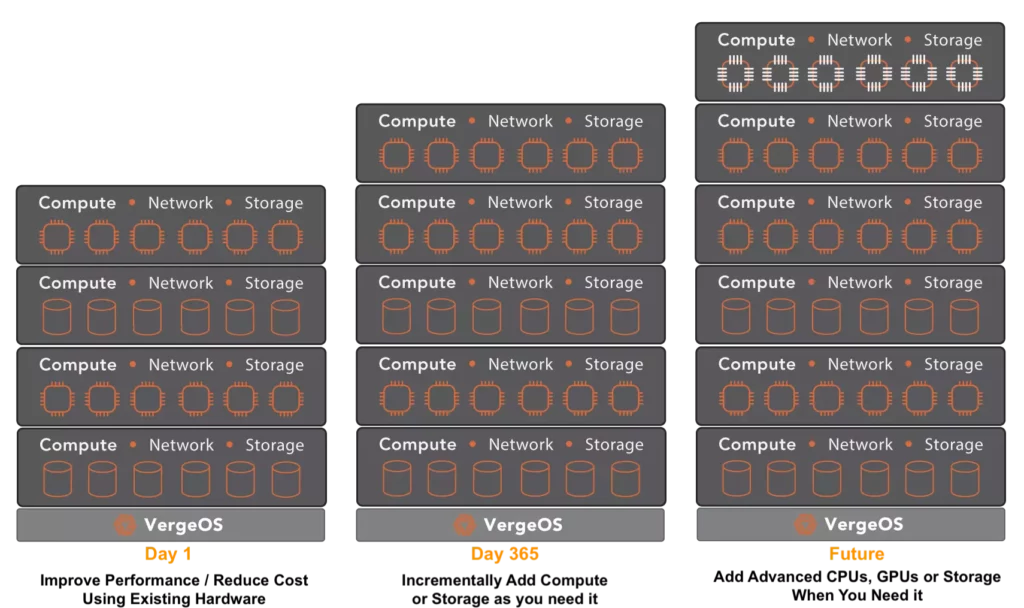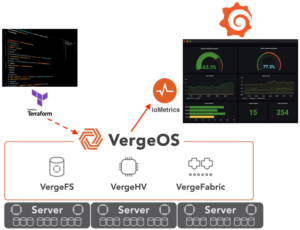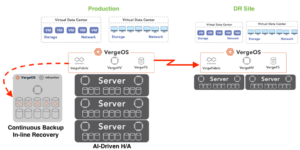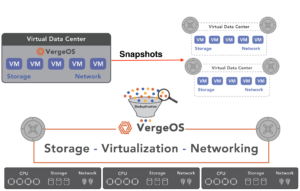IT Professionals, especially those working within mid-sized data centers, must overcome the aging IT hardware challenge. In years past, the solution was to buy new hardware, which is more complicated than it sounds since it sets off a whole round of research and vendor evaluations. Today’s flat or shrinking IT budget compounds the challenge, making it even more difficult to overcome.
Dealing with aging IT hardware and flat IT budgets are just two of the seven challenges that mid-sized data centers must overcome. Next week, IT analyst firm DCIG will join VergeIO for a live webinar where we will detail these seven challenges and how converged solutions can help overcome them.
Tuning Software Extends the Life of Aging IT Hardware
You must improve the efficiency of the software to extend the life of aging IT hardware, especially when you don’t have the option of throwing more or newer hardware at the problem. Tuning the application code is an option, but most organizations need access to it or don’t have the on-staff expertise and time required to optimize the code.
Another option is to tune the foundational software like the operating system or the hypervisor. Again, tuning the operating system is also out of reach for most organizations. The hypervisor, though, is a different story. IT can change a hypervisor without impacting the user experience. The problem is that most hypervisors are no more efficient than those currently used.
An exception is VergeOS. The VergeOS is an Ultraconverged Infrastructure (UCI) solution with a highly efficient hypervisor and integrated storage and network services. Thanks to its efficiency, your existing hardware performs noticeably better than the current hypervisor and storage solutions. This efficiency means you can extend the life of that hardware by years while also increasing load. CPU efficiency, storage performance, and network operations improve substantially when using VergeOS.
Affordable Availability Extends the Life of Aging IT Hardware
The second requirement to overcome the aging IT hardware problem is availability. IT hardware has been very reliable for over a decade but still fails occasionally, especially as it reaches five years of use. Until the point of failure, though, you want to use that hardware for all its worth. Affordable redundancy is critical.
The problem is to get higher availability with most hypervisors, operating systems, and external storage systems requires a massive investment in additional hardware and software, which is the opposite of extending the life of aging IT hardware.
Once again, VergeOS’ efficiency makes delivering higher availability affordable and straightforward. Its ultraconverged infrastructure (UCI) means that workloads can transition between nodes seamlessly. Also, the servers (nodes) within the environment can be vastly different from each other so that IT can consolidate servers from disparate workloads, and those nodes can support each other’s workloads in case of failure. The efficiency of VergeOS provides unrealized headroom so that there are enough available resources on other nodes to move workloads to them if a node fails.
VergeOS protects data automatically, so a drive failure within a node won’t result in data loss. VergeOS’ IOprotect and IOclone features enable IT to set up affordable secondary systems locally or remotely in case of disaster. Again the ability to mix node types plays a role. The DR site can use a completely different server type for its nodes. It can have fewer total nodes and use a different form of storage media.

Preventing the Massive Hardware Refresh
One of the problems of extending the life of aging IT hardware is that it compounds the impact of a forklift upgrade. As Chris Evans explains in his article “The Great Cloud Repatriation Debate – Compute on ArchitectingIT, forklift upgrades are the practice of including maintenance/support for the first three years after a new sale but significantly increasing this cost from year four onwards to “encourage” a refresh. Solving for availability solves part of this problem, but eventually, with most vendors, you will have to replace most, if not all, of the solution to get a new one.
With VergeOS, you can add just a few new servers or pieces of storage media to the same environment without replacing the assets you are sweating. Thanks to our virtual data center (VDC) technology, IT can even go so far as to allocate those new assets to specific applications or workloads that can take advantage of them. Watch our CTO Greg Campbell explain VDCs in our architecture overview LightBoard, deep dive.

With VergeOS, you can upgrade your environment gradually, over the course of years, even decades, while continuing to use the aging IT hardware until it fails. As a result, VergeOS saves you money today by making your aging hardware perform better, and it reduces your eventual replacement cost because you only have to replace what absolutely must be replaced.
Conclusion
Usually, there is no viable solution for IT Professionals wanting to overcome the aging IT hardware challenge; you must deal with it and keep your fingers crossed that nothing will break. With VergeOS, you can improve the performance of existing hardware and avoid expensive application software rewrites. Most of our customers see an immediate 50% reduction in software costs, avoid hardware upgrades for years, and improve availability and data resiliency while simplifying IT operations.
You can learn more by watching our upcoming webinar, “Overcome The Not-So-Magnificent Seven IT Challenges,” or sign-up for a test drive. Within a few minutes, we can create a complete VergeOS operating environment for you to work with. In it, you can create your own virtual data centers and virtual machines, use our IOclone to protect data, and learn the software inside and out.


